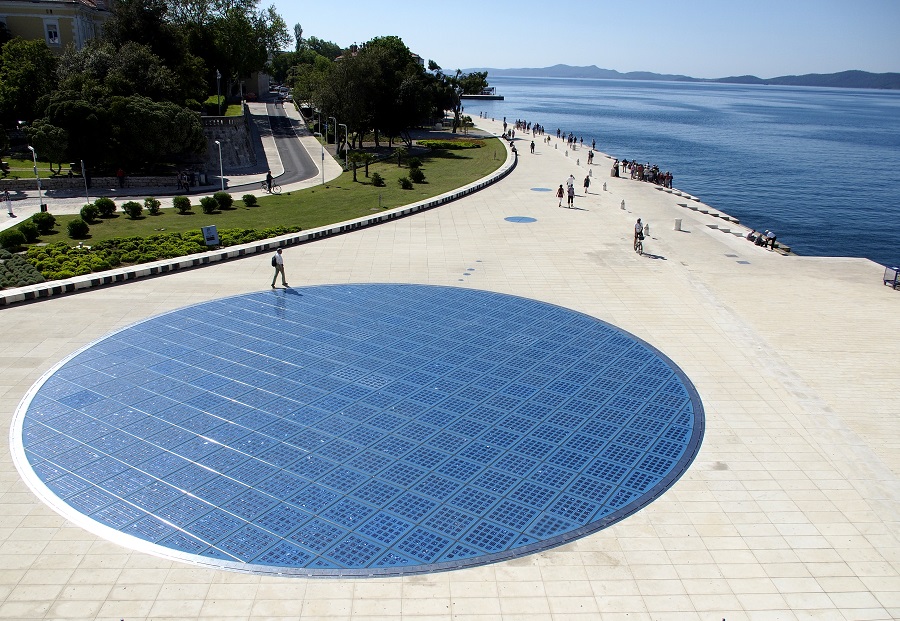It is “too slow” to get a utility-scale solar project in Croatia finalized, said Zvonimir Meštrović, head of solar business development at Zagreb-based renewable energy company ENCRO. He told pv magazine that a lack of manpower and too many permits are causing the delays.
“There are a lot of documents that you need to secure and each document takes time and it takes people,” he said. “There is a lack of people that are that are knowledgeable in these kinds of projects.”
Meštrović said that one undisclosed project his company is developing submitted its first round of government regulatory approvals in 2019, and four years later, ENCRO has now started construction. “Four years is considered good in Croatia,” he said, adding the usual wait time for wind-based projects is a decade. “The European Commission says everything needs to be up and running sooner.”
The European Commission’s EU Renewable Energy Directive states renewable energy project permits must be allocated within two years.
This is not the first time Croatia has been out of step with European Commission regulation. In February, the European Commission referred Croatia, as well as Hungary and Portugal, to the Court of Justice of the European Union (CJEU) for not turning the EU Renewable Energy Directive into national law. The European Commission said it was requesting the countries be penalized with financial sanctions as they were “failing to enact EU rules promoting more renewable energy in Europe.” In April the Commission deferred Croatia's case to be settled at a later late.
pv magazine asked the Croatian government's Ministry of Economy and Sustainable Development, the department responsible for awarding renewable energy permits in Croatia, about the average wait time for utility-scale solar projects to reach finalization and how many of these projects are tied up in red tape. We did not get a response.
Croatia recorded 182 MW of solar installed capacity at the end of last year, according to the International Renewable Energy Agency. Elizabet Škrobo is the media and communications manager at Renewable Energy Sources of Croatia – the southern European country’s leading renewable energy association – and said these numbers reflect Croatia’s “solar revolution”.
Popular content
According to the lobby group’s internal data, Croatia is on track to reaching 418 MW of installed capacity by the end of the month, with 2 GW of solar projects in the pipeline, she said.
The Mediterranean country receives a lot of sunny days, with solar data firm Solargis showing the country, specifically the coast, receives high levels of irradiance. But Škrobo is concerned that the sector’s growth is being impacted by “obstacles” such as securing construction permits and grid bottlenecks, she said.
“The waiting time for solar is amongst the worst in Europe when it comes to waiting period for the utility-scale to be connected to the grid,” she said. “The grid is almost at full capacity too. Expansion of the grid is behind. It's lagging.”
Renewable Energy Sources of Croatia is compiling a list of all of Croatia’s grid bottlenecks – called RES Simplified, Škrobo said – and will present the data to the Croatian government by the end of the year. The aim of the document is for the government to be able to see problematic areas and improve connection through infrastructure.
Croatia's promising solar market is due to the climate, wide public appetite for installing rooftop solar and the 25% value-added tax for solar products being slashed last year, she said. The Croatian government adopting a legal framework for the installation of agrisolar this year was another boon for the industry, Škrobo added, with these legislative changes making an impact on the sector.
“Croatia produced as much electricity from the solar panels just in two months in July and August as we did with as all solar panels in the past year produced,“ she said. “But we can do better.”
This content is protected by copyright and may not be reused. If you want to cooperate with us and would like to reuse some of our content, please contact: editors@pv-magazine.com.


What is permitting like offshore?
Croatia has easy space for 100GW of offshore solar, if only they could export it.